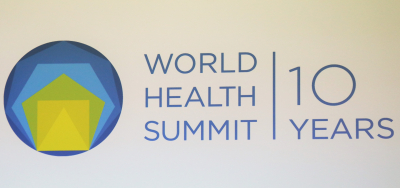


Malnutrition in its various forms is a problem faced by all countries. Major challenges for delivering food and nutrition security are compounded by pressures of growing populations, urbanization, climate change, inequality and market instability. The Sustainable Development Goals provide a key framework for addressing the challenges of malnutrition and they mandate fresh engagement by science to resolve complexities of evidence-based policies and programmes.
At the World Health Summit, IAP, in collaboration with the German National Academy of Sciences Leopoldina, presented a session introducing its Food and Nutrition Security and Agriculture project that engaged four regional working groups – in Africa (NASAC), Asia (AASSA), the Americas (IANAS) and Europe (EASAC) – to explore scientific opportunities for sustainable food production and healthy diets. The integrative food systems approach included all the steps involved from growing through to processing, transporting, trading, purchasing and consuming food, examining issues for resource efficiency, environmental sustainability, resilience and the public health agenda, while also taking account of local-global interconnectedness of systems.
The four published regional reports are currently being discussed with national and regional policy makers and are also serving as a collective resource to prepare a fifth, global report.
In this WHS session, speakers discussed some of the emerging regional and global conclusions for food and nutrition security with particular regard to the linkages to health and wellbeing. It was emphasised that it is vital to be more ambitious in identifying scientific opportunities and in mobilizing the resources from research and innovation in engagement between the scientific community, policy makers and other stakeholders.
The session attracted an international audience, including many young scientists. During the discussion session, a number of critical questions emerged from the audience, including:
Session outline and presentations:
Chairs:
Prof. Dr. Jörg Hacker: German National Academy of Sciences Leopoldina | President | Germany
Prof. Dr. Volker ter Meulen: InterAcademy Partnership (IAP) | President | Germany
Speakers:
Prof. Dr. Volker ter Meulen: InterAcademy Partnership (IAP) | President | Germany
Dr. Robin Fears: European Academies Science Advisory Council | Bioscience Programme Secretary | United Kingdom
Prof. Dr. Mohamed H.A. Hassan: Sudanese National Academy of Science | Executive Committee | Sudan
Perspectives in Africa
Prof. Dr. Joachim von Braun: Rheinische Friedrich-Wilhelms-University Bonn | Center for Development Research | Director | Germany
Global Analysis and Synthesis of Issues